Are you a pet owner looking for peace of mind when you're away from your furry friend? Crafting a pet care authorization letter can ensure that your beloved pet receives the best care possible in your absence. This document outlines the responsibilities and guidelines for the caregiver, giving you confidence that your pet is in capable hands. Ready to learn how to create the perfect pet care authorization letter? Keep reading!
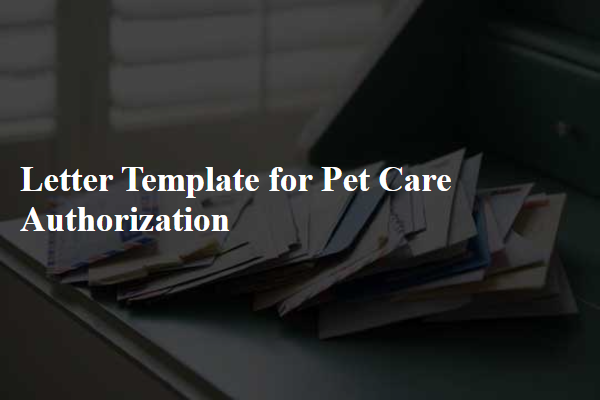
Owner's and Pet's Information
Pet owners must provide essential details for proper care. Include the owner's full name, contact information (phone number, email), and address (street, city, state, zip code). The pet's name, breed (e.g., Labrador Retriever, Siamese cat), age (in years), and vaccination status (e.g., up-to-date on rabies, distemper) are vital. Additional notes may detail any medical conditions, allergies, or specific care instructions (e.g., dietary restrictions, medications) to ensure the pet's well-being. Providing emergency contact information, such as an alternate person who can make decisions regarding the pet's care, is also important. This comprehensive information fosters a suitable environment for the pet when the owner is unavailable.
Caregiver's Authorization Details
Pet care authorization ensures animals receive proper attention during their owner's absence. Caregiver's Details include full name, address, phone number, and emergency contact information. Pet information encompasses species, breed, age, and any medical conditions. Instructions for feeding, exercise, and medication must be explicit. Emergency veterinary contact details, such as name, phone number, and location of the preferred clinic or hospital, guarantee immediate care in case of emergencies. Ongoing updates (photos, messages) during pet care can reassure owners. Liability waivers absolute clarity around responsibilities incurred during the care period are essential for both parties. Specific duration for authorization (dates) must be clearly stated to prevent misunderstandings.
Care Instructions and Limitations
Pet care authorization entails providing specific care instructions and limitations for pets, ensuring their well-being in the absence of their owners. Detailed care guidelines include feeding schedules, such as offering twice daily meals to dogs (specific brands like Science Diet recommended), walking routines (30-minute walks for energetic breeds like Labrador Retrievers), and medication administration (once daily for chronic conditions like allergies). Additionally, limitations should address restrictions on interactions with other animals (to prevent stress or aggression) and any specific behavioral issues (anxiety in breeds like Dachshunds). Emergency contact information (local veterinary clinic, such as Animal Care Clinic, 123 Main St, reachable at 555-1234) should also be clearly provided, along with authorization parameters for veterinary care if necessary.
Emergency Contact Information
Pet care authorization forms often require detailed emergency contact information to ensure the well-being of pets during unforeseen circumstances. An ideal pet care authorization should include a primary contact person's name, such as a guardian or owner, along with their current phone number, which should be a reliable way to reach them in case of emergencies. Additionally, an alternative contact could be listed, providing another layer of security if the primary contact is unreachable; this should include a name and phone number as well. Specific instructions regarding the pet's routine, health concerns, and vet information can also be included, like the local veterinarian's name and contact details, to facilitate immediate assistance if required. This comprehensive information ensures that caregivers can act swiftly and effectively in any situation that may arise.
Signatures and Date
Pet care authorization grants the caregiver permission to take responsibility for pet wellness and safety during the owner's absence, ensuring the pet's specific needs are met. This authorization includes essential details such as the pet's name, breed, age, medical requirements, dietary restrictions, and emergency contact information. In case of illness or injury, the caregiver has the authority to seek veterinary care, potentially involving local veterinary clinics, such as PetCo Animal Hospital or VCA Animal Hospitals, depending on the location. Signatures from both the pet owner and caregiver provide legal validation, with the date reflecting when the agreement takes effect, ensuring clear communication and accountability during the pet care period.

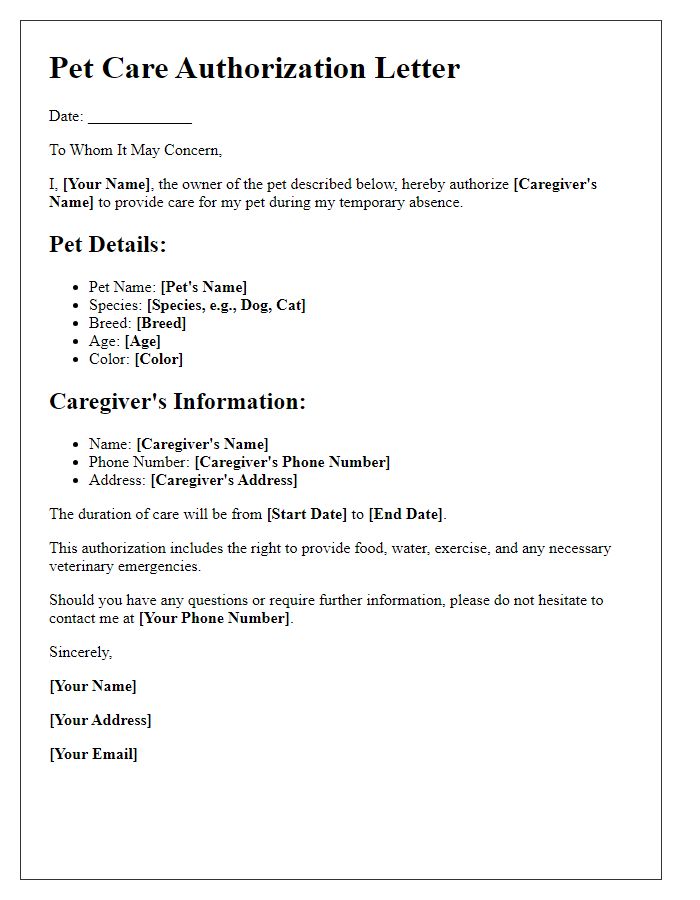
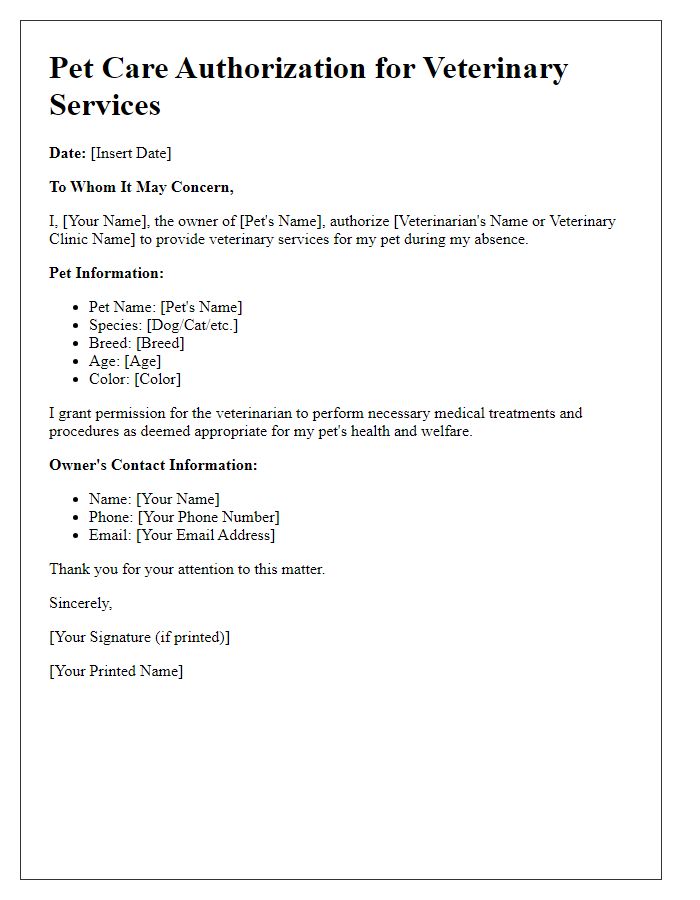
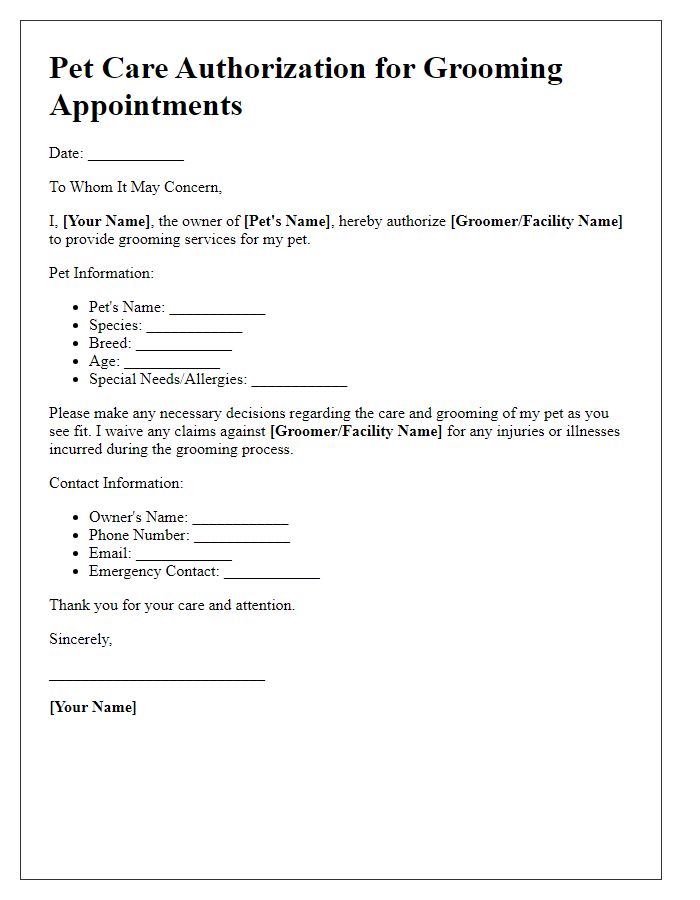
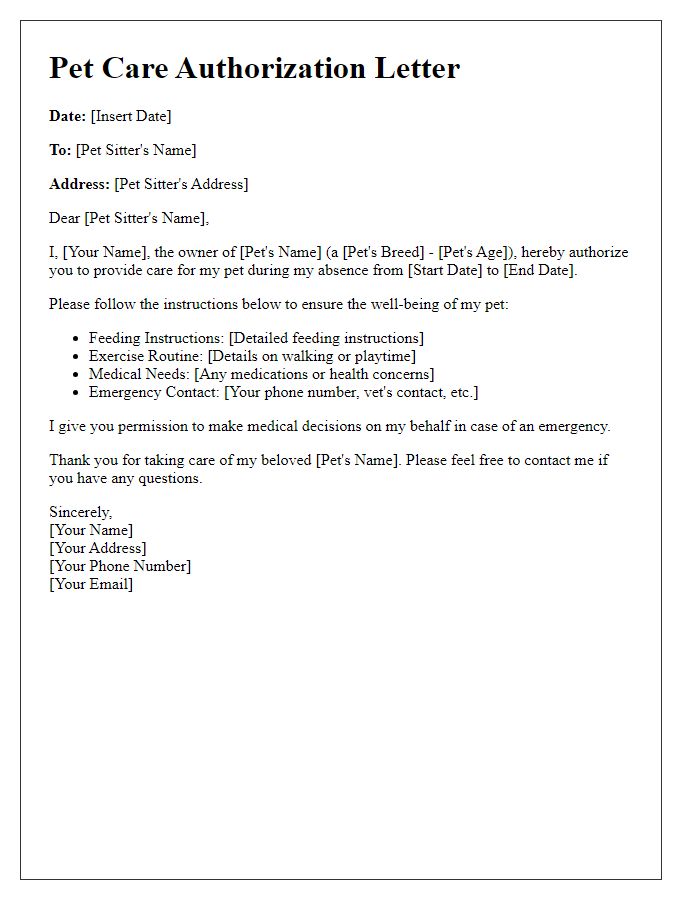
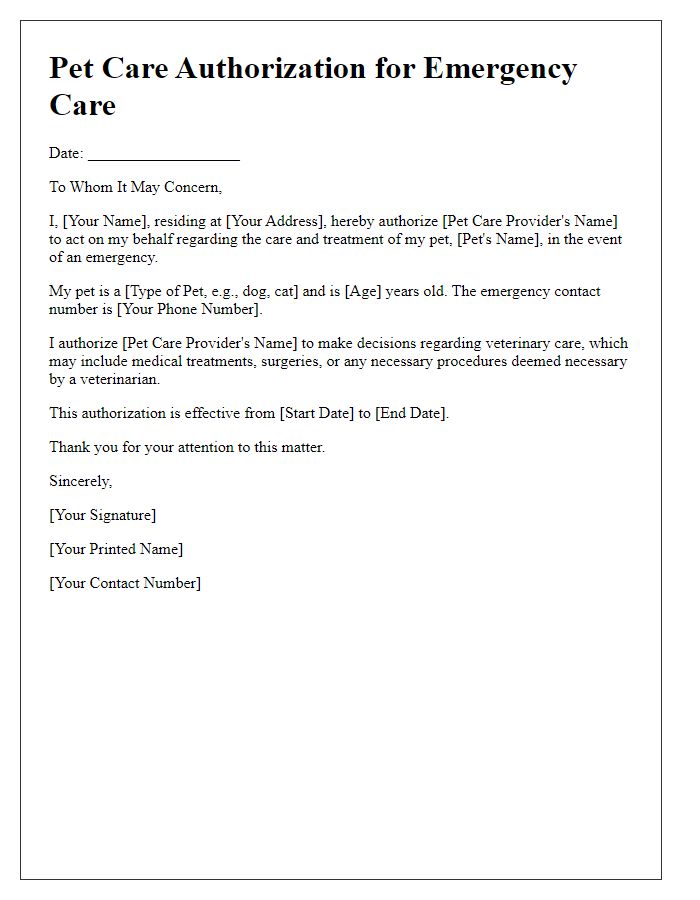
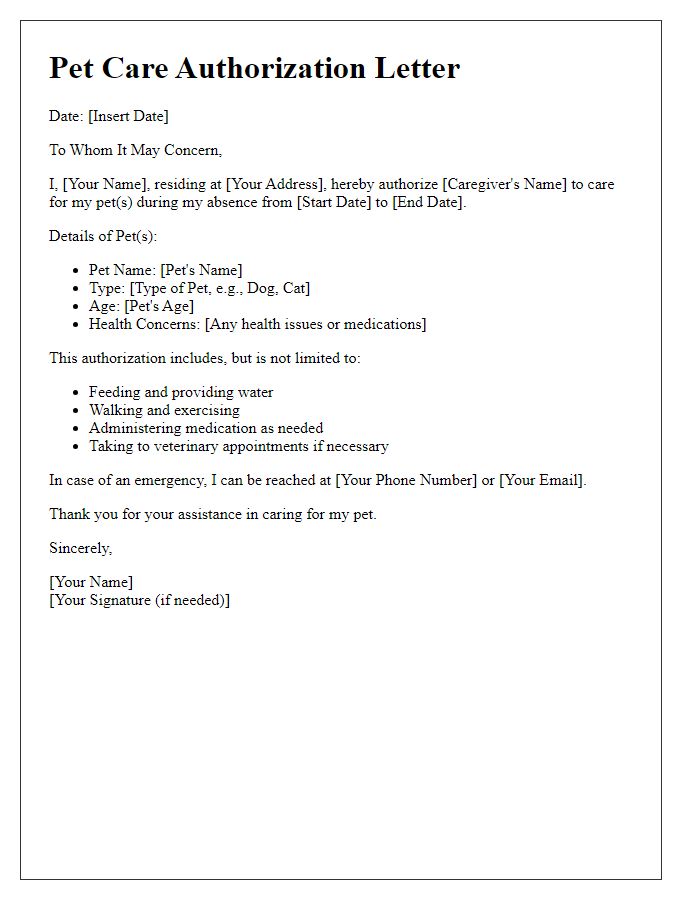
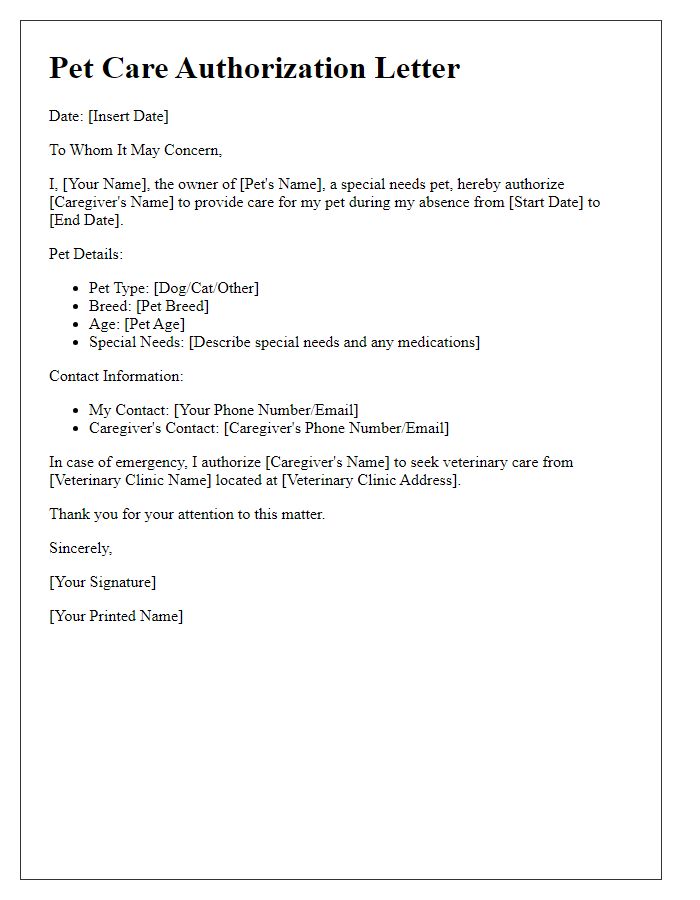
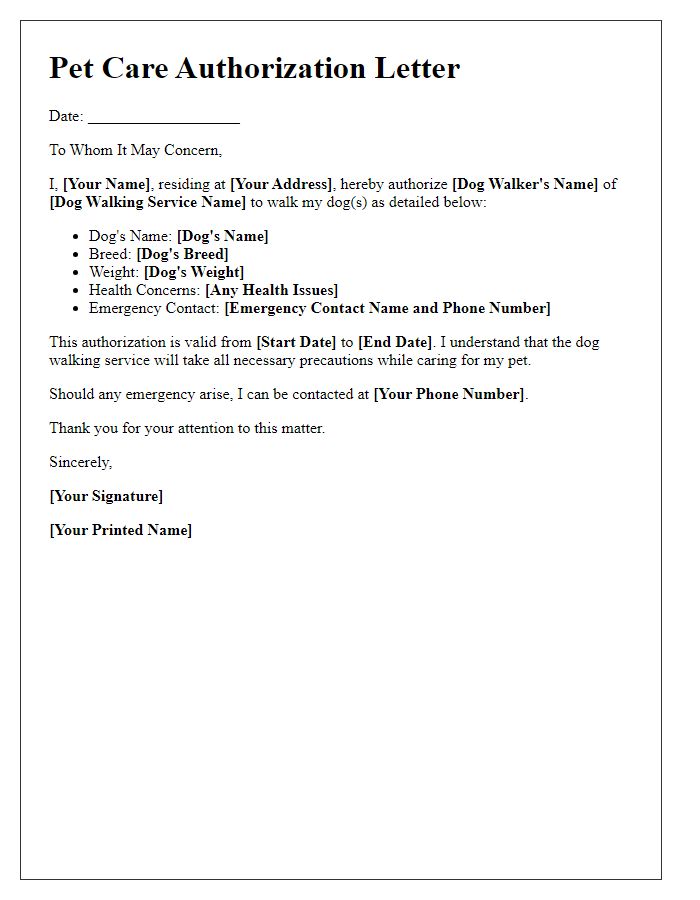
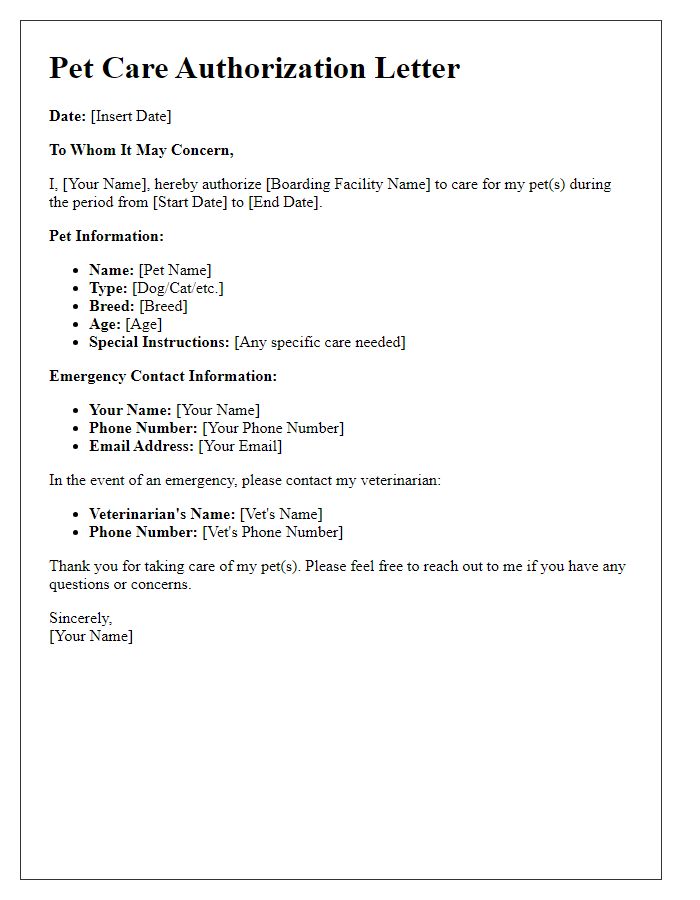
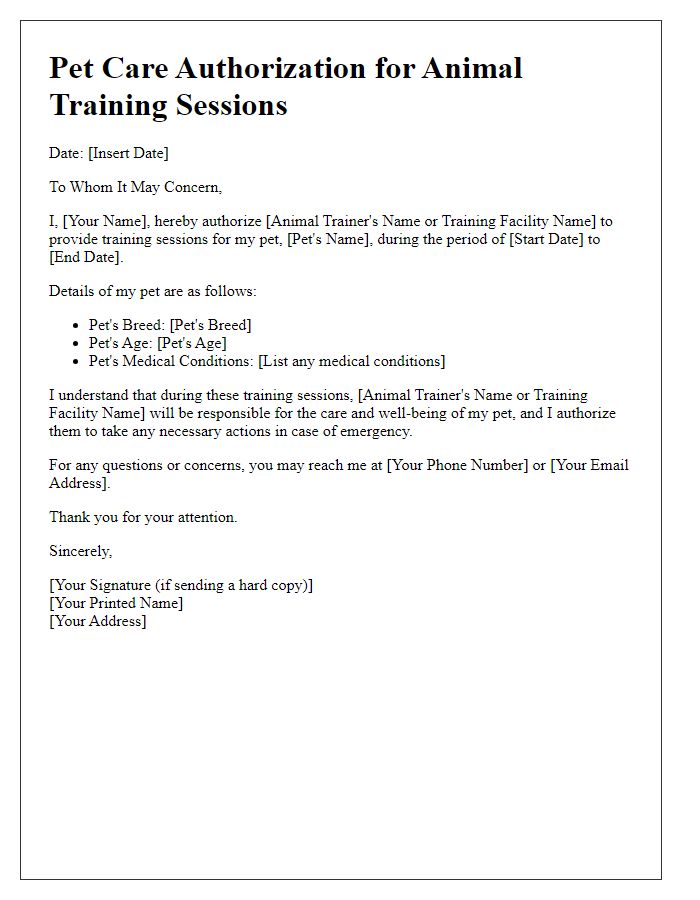

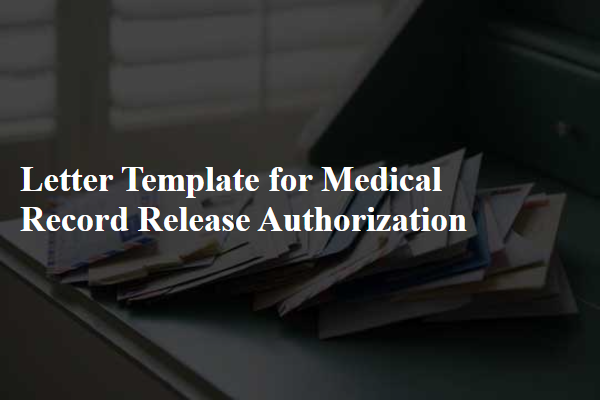
Comments